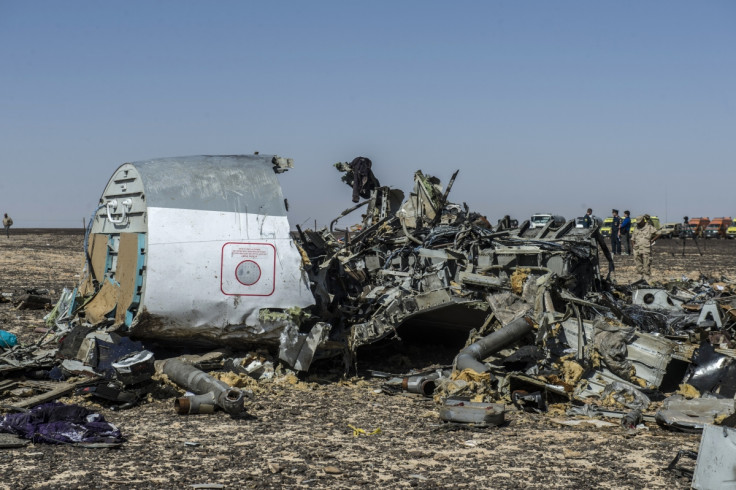Russian plane crash: Egypt's economy could take years to recover experts warn

A large percentage of holidaymakers stranded in Sharm el-Sheikh are unlikely to ever return and it will "take years" for Egyptian tourism to recover, experts have warned. Tourism is vitally important to Egypt's economy and the crash will have far-reaching consequences.
"This time it has hit the heart of Egypt's tourist industry," Dr Yeganeh Morakabati told IBTimes UK.
"I fear we are reaching a tipping point for tourists heading to the country," added the terrorism expert at Bournemouth University, who has studied the impact of similar events. "People will start to think that they don't want to be a tourist target."
Although investigators are continuing to try to determine what caused the Metrojet Airbus 321 to come down in Egypt on Saturday 31 October, the British government grounded flights to and from the resort four days later.
The decision was reportedly taken after British secret service agents reviewed intercepted messages that showed Islamic State (Isis) extremists had plotted a major terror attack in the region.
Russia also confirmed that it will suspend all flights to Egypt and will draft a plan to get its stranded citizens back home.
Around 20,000 British holidaymakers were stranded at the resort and, while some managed to return home on Friday, others were left frustrated when Egyptian authorities suspended some of the flights sent to carry them home.
After events of this magnitude "it is hard to build confidence" said David Goodger, director of tourism economics in Europe at the Tourism Economics company, which analyses and provides forecasts for the tourism industry.
After peaking in 2010 "the general tourism market has not recovered since the Arab Spring in 2011," he said.
Data from the World Travel and Tourism Council shows that the tourism sector grew to $46bn (£30.5bn) in 2010 but that dropped by $8bn (£5.3bn) the following year. Since then, it has fluctuated, reaching $40bn (£26.5bn) in 2012, but just $34bn (£22.5bn) in 2013.
The British market peaked in 2010 with close to one-and-a-half million visitors, but that had dropped to less than 900,000 by 2014, Mr Goodger said.
"Tourism was around 7% of the economy and it had dropped down to about to about 5%," he added. "Including the wider impact supply chain it was probably up around 17% or 18%, dropping down to around 12%. All told, close to a million jobs were affected."
In 2013 and 2014, he said around 400,000 tourism jobs were lost, he said, adding that after recent events "it is likely to be around that magnitude but potentially more as you are coming from such a lower base."
Despite drops everywhere else, the Russian market which has been one of the most resilient ones for Egypt, staying strong as others dropped off, he added.
"In terms of Russians travelling to Egypt it was estimated that you were looking at somewhere between two-and-a-half to three million visitors last year and around that number was expected this year too," he said.
If this attack had been specifically targeted at the Russians, "it could be a huge blow to that market," he said.
Fewer visitors "would definitely affect people's livelihoods," in the short term, added Dr Morakabati, who said the loss of the foreign exchange would lead to increasing unemployment, "which of course leads to increasing poverty".
"When this sort of thing happens, prices drop down, so income per person will drop too," she said, "So even if they got the same amount of visitors, their profit margins will be much lower. It's hitting them from all sides."
She added that the region was already tense because of the war in Syria, the rise of IS and the attack earlier this year on the beach of the Tunisian resort of Sousse, when a gunman massacred 38 people, 30 of whom were British.
None of this "is good news at all for the tourism industry in Egypt," she said.
With youth unemployment standing at around 26.3% according to a 2015 report issued by Egypt's Central Agency for Public Mobilisation and Statistics (CAPMAS), Dr Morakabati said she feared more job losses from the tourism industry could drive young people towards extremism.
"If they jobless, they are often angry and bored, so extremism or terrorism can seem attractive or exciting to young people," she said. "It's a vicious circle."
© Copyright IBTimes 2025. All rights reserved.





















